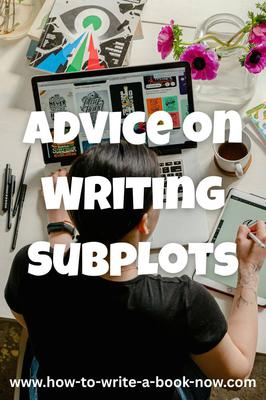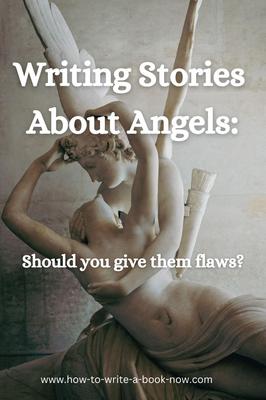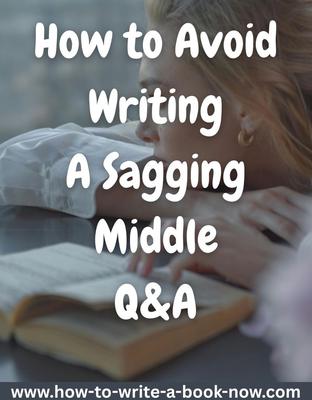Plagiarism?
by Joy
(USA )
Question: My novel started out as a fanfic and now I'm worried that it's too close to the original source material. I tried to change as much as I could but a lot of things that are similar are meaningful or otherwise integral to the novel. Some of the things that are the same are location, (general) characters and their (general) backstory (names changed, obviously), and some plot (regarding politics). Things that are original are my spin on characters (character motivation, some backstory), the romance plot (it is a romance novel), the ending of the political plot, etc. It is not step by step the same as the first work but there are definitely some glaring similarities in terms of plot and characters.
To give an example, say I'm writing a book about an 11 year old named Chris who goes to a magical school and ends up in the middle of a magic war. He falls in love and together, he and his girlfriend, and their friends, work together to win the war.
So in my example, you can see it is very similar to Harry Potter yet there are key differences such as the romance aspect, the lack of prophecy, etc.
How do I know if my novel is too close to the original? What are the legal ramifications if I get published? Should I disclose to my agent/publisher, etc that it started off as a fanfic and contains elements of the original work? If so, when should I disclose this?
Answer: It is true that not every premise must be 100% original. For example, before Harry Potter there was The Worst Witch, which began a series about a girl witch, going to a boarding school for witches. Some of the characters appear to be forerunners of Draco Malfoy and Snape, though one could argue the types appear throughout the boarding school subgenre.
Another example: people have sometimes criticized The Hunger Games for drawing on Battle Royale.
For that matter, the City of Bones series by Cassandra Clare began as Harry Potter fan fiction, with some characters being originally based on Ginny Weasley, Draco, and Dumbledore.
However, it's important to note that Cassandra Clare altered her characters and setting substantially between their first appearance in fan fiction and their final form in City of Bones. Her fantasy world is very different from Hogwarts, and the plot of her book bears no resemblance.
On the other hand, Stephanie Meyer, though found innocent, was taken to court over similarities between her book Breaking Dawn and The Nocturne by Jordan Scott.
I think you have two issues here.
1. Technical plagiarism, which is copying someone else's words. This is a more rigid standard to meet, but it can have financial consequences if you are taken to court. The saving grace here is that one cannot copyright ideas, only the expression of those ideas in words.
2. The perception of plagiarism. This is when readers notice the similarity of your story to someone else's story and conclude that you were deliberately stealing ideas. Even if there is no legal challenge, you can lose fans, readers, and respect if the court of popular opinion decides that your story is unoriginal.
For this reason, if you are going to borrow ideas, it's best to borrow only from works that are in the public domain (and are perhaps so old that most of your readers will be unfamiliar with them).
Assuming you are not copying (even by accident) the wording of an earlier work, what you must ask yourself is if most readers will notice the similarities between your story and an earlier, copyrighted story. Perhaps show it to some people and ask them if they do.
If so (and bearing in mind that most people are familiar with Harry Potter, in your example), I would suggest you change the illustrations in your story so that they are unrecognizable. Change the personalities and backstories of the characters. Change the rules of the fantasy world. Change the setting, the plot, etc.
In doing so, you can keep the essence if you must, but do change the specifics. For instance, if you want your hero to be an underdog, that's fine. But don't make him an underdog for exactly the same reasons as Harry Potter. Don't have him sleep in a cupboard under the stairs. Don't give him a lightening bolt scar and perpetually messy hair. Don't have him talk to snakes, etc.
Make sure there are no "glaring similarities."
If you are selling the book to a publisher, you may have to sign a contract that states your story is original and that you are responsible for any legal ramifications that would result from a successful copyright infringement suit. It would be a terrible shame to have a bestselling book and have to give back all the royalties you earned.
Assuming you eliminate or change all the illustrations you may have borrowed so that no copyright suit would be possible, I would be reluctant to tell your agent or publisher that the story started out as fan fiction, just because it might raise the plagiarism issue.
On the other hand, if your fan fiction has earned you many thousands of fans, that would be a point in your favour, since it might result in more sales.
You might say something like, "I have built a large following writing fan fiction, but now I have a novel to offer you that is 100% original." (And make sure it is.)
P.S. I'm curious that you would create a romance novel about an eleven-year-old hero. But perhaps you just meant that as an example?
Comments for Plagiarism?
|
||
|
||
|
||
- Home
- Writing Questions
- Plagiarism?















